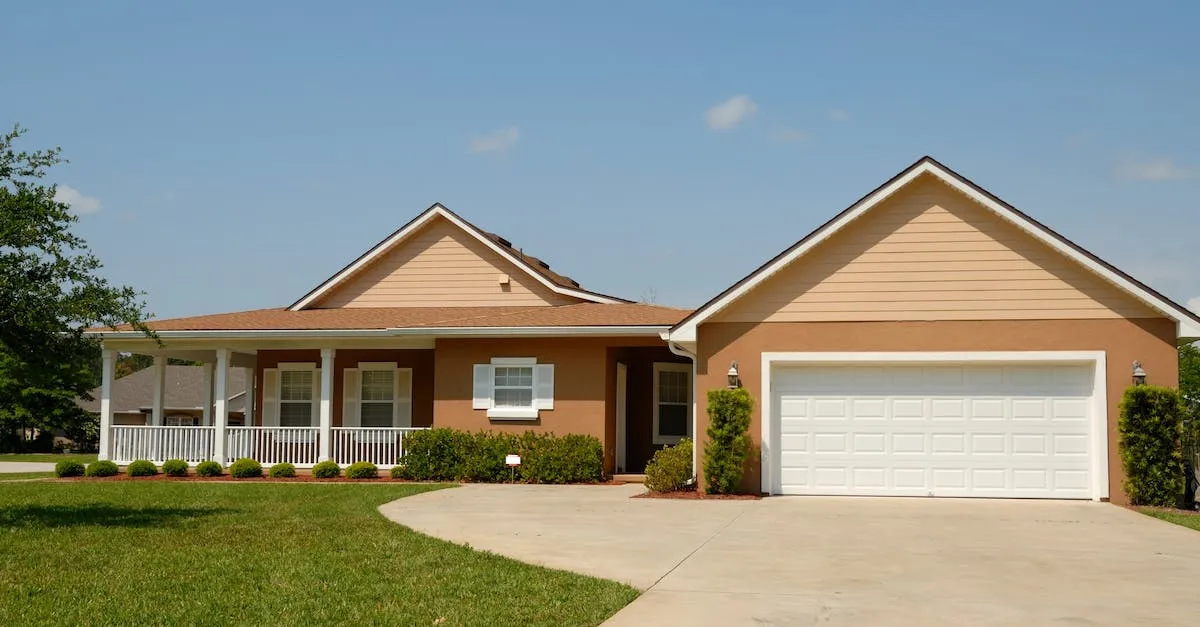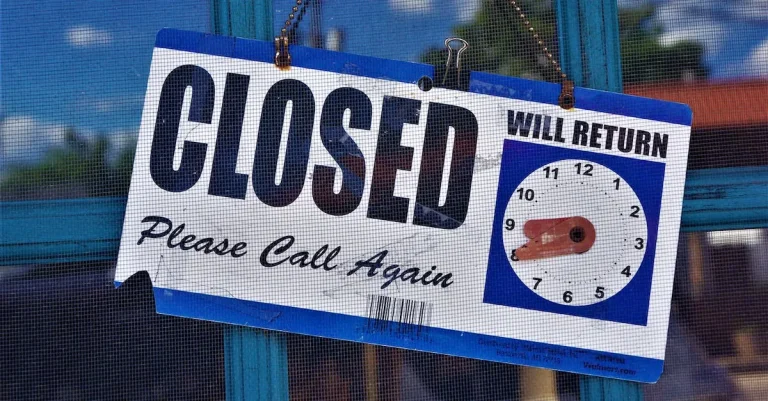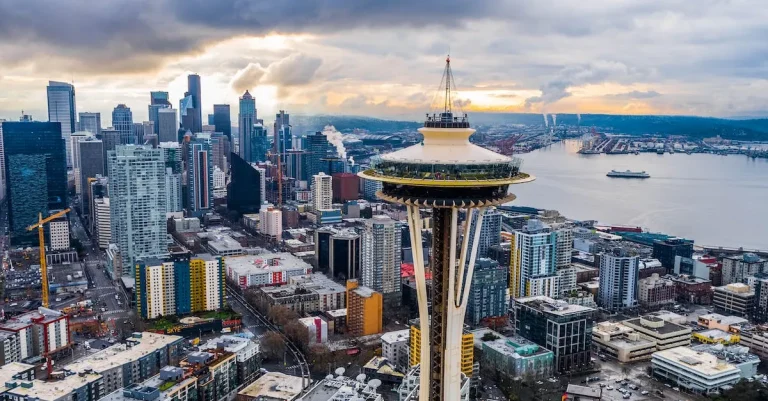I Hate Living In Seattle: Here’S Why And What You Can Do
If you find yourself asking ‘why do I hate living in Seattle?’, you’re not alone. Many people move to Seattle full of excitement, only to end up disliking life in the Emerald City. Seattle has its perks, like access to the outdoors, a booming job market, and a hip, educated population. But it also has downsides that can make daily life a struggle. In this article, we’ll explore the top reasons why some people hate living in Seattle, and what you can do if you feel the same.
If you’re short on time, here’s a quick answer: Common reasons people end up disliking Seattle include the high cost of living, rainy weather, traffic congestion, lack of diversity, passive aggressive ‘Seattle Freeze’ culture, and more. If you hate living in Seattle, consider looking for ways to get involved and meet people, trying suburbs for an easier commute, or relocating altogether.
It’s Too Expensive
One of the main reasons why many people express dissatisfaction with living in Seattle is the high cost of living. From housing to everyday expenses, the city’s price tags can be overwhelming.
Housing is Extremely Costly
Seattle is notorious for its expensive housing market. The city’s booming tech industry has driven up demand for housing, resulting in skyrocketing prices. According to Zillow, the median home value in Seattle is well above the national average.
Renting is also no bargain, with monthly rents often exceeding the budgets of many residents.
In addition to high housing prices, the competition for available properties can be fierce. Prospective renters or buyers often find themselves in bidding wars, driving prices even higher. This can make it incredibly challenging for individuals or families to find affordable housing options in the city.
Other Costs Add Up Too
While housing may be the most significant expense, other costs in Seattle can add up quickly. The city has a relatively high cost of groceries, transportation, and healthcare. Utilities and insurance rates can also be more expensive compared to other cities.
Furthermore, the cost of dining out and entertainment in Seattle can be quite pricey. Whether you’re grabbing a quick bite or planning a night on the town, you may find yourself spending more than you anticipated.
It’s essential to budget carefully and be mindful of your spending habits if you’re living in Seattle. Finding ways to save money on everyday expenses can help alleviate some of the financial stress associated with the city’s high cost of living.
The Weather is Gloomy
One of the most common complaints about living in Seattle is the weather. The city is notorious for its gray skies and rainy days, which can stretch on for months at a time. It’s no wonder that many people find it difficult to cope with such gloomy weather day in and day out.
Gray Skies for Months
Seattle’s reputation for gray skies is not unfounded. According to The Weather Channel, the city experiences an average of 152 cloudy days per year. That means nearly half of the year is spent under overcast conditions.
For those who thrive on sunshine and blue skies, this can be a major disappointment.
However, it’s important to note that the weather can vary greatly throughout the year. Summer months tend to be more pleasant, with longer days and more sunshine. It’s during the fall and winter seasons when the gloominess is most pronounced.
Vitamin D Deficiency is Common
Another consequence of Seattle’s gloomy weather is the prevalence of vitamin D deficiency among its residents. The lack of sunlight can lead to lower levels of vitamin D in the body, which is essential for bone health, immune function, and overall well-being.
A study published in the Journal of Endocrinology and Metabolism found that 36% of Seattle residents had insufficient levels of vitamin D. This deficiency can contribute to a range of health issues, including fatigue, depression, and weakened immune system.
To combat vitamin D deficiency, it’s important for Seattle residents to take proactive measures. Spending time outdoors whenever the sun does make an appearance, taking vitamin D supplements, and consuming foods rich in this essential nutrient can help maintain optimal levels.
While the weather in Seattle may not be everyone’s cup of tea, it’s important to remember that there are ways to cope with the gloominess. Finding indoor hobbies and activities, investing in high-quality rain gear, and seeking out opportunities to enjoy the outdoors during the sunnier months can all help make living in Seattle more enjoyable.
Bad Traffic Makes Commuting a Pain
Living in Seattle can be frustrating for many reasons, but one of the biggest complaints residents have is the terrible traffic. The city’s growing population and limited road infrastructure have resulted in congested roads and long commute times.
Congestion Seems Never-Ending
Seattle’s traffic congestion is a well-known issue that affects both residents and commuters. The city consistently ranks among the top cities in the United States with the worst traffic. Rush hour can turn a short commute into a never-ending journey, leaving drivers frustrated and stressed.
According to a study conducted by INRIX, a leading provider of traffic data and analytics, Seattle drivers spend an average of X hours in traffic each year. That’s a significant amount of time wasted sitting in bumper-to-bumper traffic.
One of the main reasons for the never-ending congestion is the lack of adequate road infrastructure to accommodate the growing population. Seattle’s hilly terrain and limited space make it challenging to expand roads and build new highways.
As a result, the existing roadways become overcrowded and overwhelmed.
Public Transit Has Drawbacks Too
While public transit is often touted as a solution to the traffic problem, it also has its drawbacks. Seattle’s public transportation system, including buses and light rail, can be unreliable and overcrowded during peak hours.
Delays and overcrowding can make commuting by public transit just as frustrating as driving.
Additionally, the limited coverage of the public transit network can make it inconvenient for those who live in areas with poor accessibility. Some neighborhoods may have limited or no access to public transportation, forcing residents to rely on their cars.
Furthermore, public transit may not be a viable option for individuals who have to travel with bulky items or need to make multiple stops during their commute. Carrying heavy bags or navigating through public transit with groceries can be a hassle.
Despite the drawbacks, there are still ways to make your commute more bearable in Seattle. Carpooling or ridesharing with coworkers or neighbors can help reduce the number of vehicles on the road and make the commute more enjoyable.
Additionally, taking advantage of flexible work hours or telecommuting options can help avoid peak traffic times altogether.
Ultimately, while the traffic situation in Seattle can be frustrating, exploring alternative transportation options and adopting a more flexible approach to commuting can significantly improve your experience in the Emerald City.
It Can Feel Homogeneous
Living in Seattle can sometimes feel like you’re stuck in a bubble of homogeneity. The city has been criticized for its lack of diversity, with a population that is predominantly white. According to the U.S. Census Bureau, as of 2020, over 65% of Seattle residents identified as white, while only around 7% identified as Black or African American.
Lack of Diversity
The lack of diversity in Seattle can make it difficult for individuals from different backgrounds to feel fully included and represented. This can lead to feelings of isolation and cultural disconnect.
It’s important for the city to actively work towards creating a more inclusive environment for all residents, regardless of their race or ethnicity.
Tech Bro Culture
Another factor that contributes to the homogeneous feel of Seattle is the prevalent “tech bro” culture. The city is home to several major tech companies, including Amazon and Microsoft, which have brought in a large number of young, predominantly male, tech workers.
This can create an environment that feels dominated by a specific demographic, leading to a lack of diversity in perspectives and experiences.
However, it’s worth noting that efforts are being made to address these issues. Organizations and community groups are working towards promoting diversity and inclusion in the city, and initiatives such as mentorship programs and diversity hiring practices are being implemented by some companies.
If you find yourself feeling disconnected from the homogeneous culture in Seattle, there are things you can do to make a difference. Engage with local community organizations, attend events that celebrate different cultures, and seek out diverse social groups.
By actively participating in efforts to create a more inclusive community, you can help break down barriers and make Seattle a more vibrant and diverse city for everyone.
The ‘Seattle Freeze’ is Frustrating
Living in Seattle can be a wonderful experience with its beautiful landscapes, thriving job market, and vibrant culture. However, one aspect that many newcomers and even long-time residents find frustrating is the phenomenon known as the ‘Seattle Freeze.’
Passive Aggressive Tendencies
The ‘Seattle Freeze’ refers to the perceived coldness and unfriendliness of Seattleites. While this may not be true for everyone in the city, it is a common sentiment among many. One aspect that contributes to this feeling is the passive-aggressive tendencies that are prevalent in the Seattle culture.
Seattleites are known for their indirect communication style and avoidance of conflict. Instead of addressing issues directly, they may resort to subtle hints or passive-aggressive behaviors. This can make it challenging for newcomers to understand social cues and establish meaningful connections.
For example, if someone in Seattle invites you to hang out but constantly cancels at the last minute or is consistently unavailable, it may be a sign that they are not genuinely interested in forming a friendship.
This kind of behavior can be confusing and disheartening, especially for individuals who are used to more straightforward and direct social interactions.
Hard to Make Friends
Another aspect of the ‘Seattle Freeze’ is the difficulty in making new friends. Seattle is known for having a high transient population, with many people moving to the city for work opportunities. This constant influx of newcomers can make it challenging to form lasting connections.
Additionally, Seattleites tend to have established social circles and may not be actively seeking new friendships. This can make it feel like breaking into existing friend groups is nearly impossible. The city’s reputation for being introverted and reserved further exacerbates this issue.
However, there are ways to overcome the ‘Seattle Freeze’ and make meaningful connections. Getting involved in local communities, joining social or hobby groups, and attending events can help you meet like-minded individuals who share similar interests.
It’s also important to be patient and persistent in your efforts to make friends, as building relationships takes time.
Ultimately, while the ‘Seattle Freeze’ can be frustrating for newcomers, it’s essential to remember that not everyone in the city embodies this mentality. By being proactive, open-minded, and persistent, you can navigate the social landscape of Seattle and find genuine connections with the amazing people who call this city home.
Conclusion
If you find yourself disliking life in Seattle for any of the reasons above, know that you’re not alone. Many transplants struggle to adjust to the city’s downsides. Before giving up on Seattle entirely, try getting involved with groups tied to your hobbies and interests. This can help you find your people. Living in the suburbs or hanging out mainly on the Eastside can also help you avoid some of Seattle’s pain points like cost and traffic. At the end of the day though, Seattle might just not be a good culture fit for you. Listen to your gut, and don’t be afraid to consider moving if Seattle life is making you miserable.








